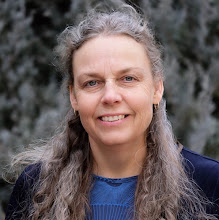Ecological understanding & language
When biologists describe a new species, the popular press talks about it in terms of science has “discovered” a new species, “previously unknown.” This may well be true for deep sea species, but for plants and animals on land, in many cases the species wasn’t unknown at all. Often, whichever indigenous human group lives in or near that species’ habitat has known about the species for a long time. Ecologists and biologists are increasingly realizing that to describe the world’s ecosystems, they need to rely on the knowledge of the indigenous people who live in those systems.
In Australia’s Northern Territory, Parks & Wildlife is giving back native title for many lands within the Park system, and is working with local Aboriginal people to co-manage the wildlife in the parks. Surveys of flora and fauna are done in collaboration with Aboriginal people. In Arnhem Land in the far North, a long-necked river turtle lives in holes in the rock cliffs above a river that cuts a deep gorge through the Arnhem Plateau. Until the year 2000, this turtle had neither an English nor a scientific name, and scientists had not realized that it was different from the northern long-necked turtle, Chelodina rugosa. In the language of the Gagudju, however, one of the Aboriginal peoples who live on the Plateau, the Arnhem long-necked turtle was called burrundganji, whereas the northern long-necked turtle was called almangiyi. They made no such confusion between the two species. In honour of their knowledge, the biologists who formally described the Arnhem long-necked turtle used the Aboriginal name in the species’ scientific name, Chelodina burrundganjii.* There are only a handful of people left who still speak the Gagudju language. As in many Aboriginal languages, knowledge of the land and ecology is woven into the words and structure of the language. What ecological knowledge do we lose with each language that gets swallowed up by English?
Joint Park management in the Northern Territory
* from Spoken Here: Travels Among Threatened Languages, by Mark Abley, 2003, London: Arrow Books (Random House)


0 Comments:
Post a Comment
<< Home